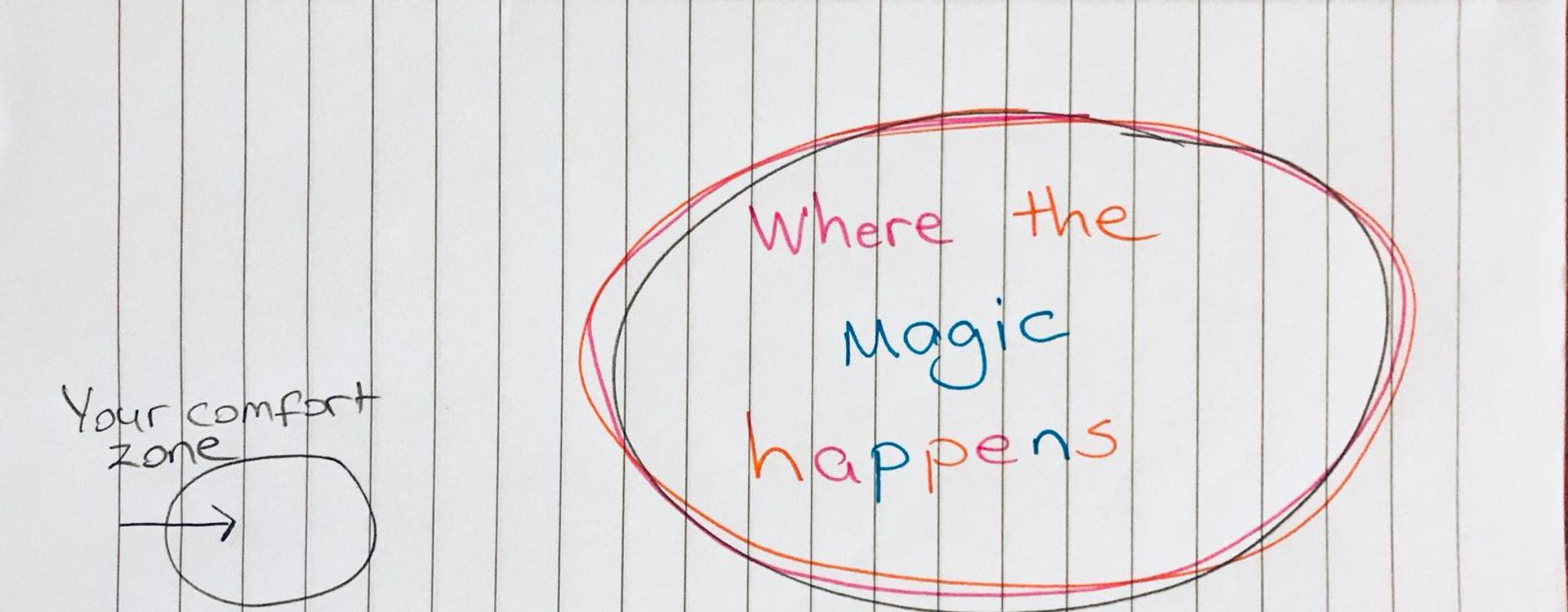
Written by Brooke
18 Oct 2020
When I moved to Sweden at the beginning of August, I felt as though I was at the top of the world. Here I was moving abroad for the first time in my life to the country that I had dreamt of living in for so long. I was excited and nervous and once I eventually arrived in Sweden I was busy settling in, furnishing my apartment and getting to know my city, and making friends. The next couple of weeks were being busy but also being preoccupied with all the new stuff I had to take in and get done. During this hectic time, I rarely had time to sit down and check-in with how I was doing and adjusting to my new life. I was incredibly happy and didn’t notice that anything was making me anxious or sad so I didn’t think to reflect. Once classes started and I entered a particularly hard course did I realize that I was starting to feel stress and overwhelmed.
With everything going on I caught up so much in my new life that I completely forgot to prioritize the thing that mattered to me most – my mental health. Because I noticed that nothing was wrong I completely forgot to check in with myself and see how I was doing. Even if you haven’t been diagnosed with a mental illness or you don’t experience stress, anxiety, or depression daily, mental health is just as important as your physical health. If you’re not taking care of yourself, your mental health can deteriorate. It is hard being a student – having to do well in school while also maintaining a personal life can be difficult. I am still happy and overjoyed to live and study in Sweden but sometimes the stress of performing well in school can be overwhelming. Here are some tips and tricks from my own experience as a student so that you can be healthy and well and make the most of your university experience.
Take a walk or exercise
I tend to stay in the library until sunset and after I leave I am too tired to go out on a run or take a walk. Now that it is getting darker earlier, I wish I would’ve taken advantage of the sunlight to go on a walk, clear my head, and disconnect from my work for a while. Studies have shown that walking puts your brain into a calmer state, boots endorphins which can in turn reduce stress hormones and alleviate mild depression. And if you don’t like walking there are various other activities such as yoga, running, playing various sports that can give you time to take a break and relieve some stress.
Meditate/Pray
Meditation, the act of giving your attention to become calm and relaxed, has been proven to be beneficial to your mental health and is backed by science. Meditation has shown to be helpful for your mental health by giving you better focus and concentration, improved self-awareness and self-esteem, and lower levels of stress and anxiety (Heger, 2020). Thanks to technology, guided meditations are found all over the internet such as Youtube, apps such as Headspace Calm, and even through Instagram accounts with meditation teachers such as Lauren Nash ↗️ and Sara Auster. ↗️
If you identify with a specific religion, there are also mental health benefits of the act of prayer. These benefits include the production of serotonin in the brain, the happy chemical in your body that contributes to well-being happiness. Prayer is used by many people to cope with everyday life and the traumas they have experienced (CPTSD Foundation, 2020).
Talk with friends or family
While friends and family might not understand your specific stress and anxiety when it comes to school, it is very helpful to connect with the ones that know you best. Our social needs need to be met as humans and we need to feel a sense of belonging to a social group or family or friends. When we face difficult times we need to turn to people for advice and support (Health Hub, 2020). Even though living abroad I can’t be with my family physically I am thankful for technology such as FaceTime, Zoom, and Skype to be able to connect with my family weekly to check in with them and talk through what I am feeling. Your friends and family care about you deeply and want to see you healthy and doing well – do not hesitate to reach out to them!
Journal
I’m sure we all have kept a notebook or diary of our thoughts or feelings at some point in our life whether that be in adolescence or adulthood. Whether you have kept up with it or not (I am particularly guilty of this), there are also mental health benefits to regularly journaling and writing down your thoughts. Journaling can help you manage anxiety, reduce stress, and cope with depression (University of Rochester Medical Center Rochester Health Encyclopedia). Journaling can help you improve your mood and control your symptoms by helping you prioritize problems, fears, and concerns, track your symptoms to recognize triggers, and provide an opportunity for positive self-talk and identifying negative thoughts and behaviors. It doesn’t matter how you journal – writing in a notebook, talking into the camera on your phone, drawing/painting – just as long as you find a way to get your thoughts out of your head. Take time out of this week for yourself to write what feels natural to you and get started journaling!
Talk to colleagues and professors
At the beginning of starting my graduate program, I was nervous to approach my professors for fear that I would be taking up their time or that I would appear dumb in front of them since they are highly educated, intelligent people. In my first course, I mistakenly waited until the last day of class several days before my take-home exam was due to talk to my professor that I was struggling in the course. As I said before, I was extremely nervous to approach him but upon approaching him I realized that he is there to help his students to succeed and learn just as all my professors are here to do. In the end, I am glad I went up to talk to him as I received the help and support I so desperately needed. Professors choose to teach because they care about their students and are here to help you with whatever problems you are facing. Don’t make the mistake I did and please let your professors and other faculty in your department know if you are struggling.
Get good rest
While the homework I face in grad school can be a lot and very overwhelming to finish in one night, it is always important to get good rest and sleep. Getting enough sleep is vital to academic success and can affect performance as a student. Sleepiness and poor sleep quality are prevalent among university students which can affect academic performance. The American Academy of Sleep Medicine suggests that students:
- Go to bed early about 7 to 8 hours per night
- Stay out of bed – only use your bed for sleep, not studying
- Limit naps (I am a culprit of this one) – nap for less than an hour and before 3pm
- Avoid caffeine – in the afternoon and night
- Wind down – take some time away from your computer, turn off your laptop and cell phone and relax for 15 to 30 minutes. (American Academy of Sleep Medicine, 2017).
See what resources are at your university and in your city
Mental health is persistent and can be hard to deal with and sometimes the tips and tricks above simply are too much to bear. You must reach out for professional help and receive the care that you need to get better. Most universities have a student health clinic with a psychiatrist or psychologist on site and know that many students struggle with mental health issues in university. Go to your university’s website or drop into your university’s info center to see how you can get assistance with mental health resources.
Call and seek help if you are in an emergency
If your university does not have these resources and you have a personummer and Bank ID, you can log on to 1177.se ↗️ and book an appointment to see a therapist or psychiatrist. Please note that it can take some time to get an appointment and if you are in immediate danger to please call 112 if it is an emergency. You can also call Mind Suicide Helpline at 901 01 where you can receive free counseling over the phone anonymously or visit their website. ↗️ Visit 29k ↗️ where you can get a further list of helplines to call if you are in a mental health crisis.
We live most of our life inside our minds so we might as well make it a nice place to be. University and life, in general, can be overwhelming and difficult and we deserve to take care of ourselves and be healthy. I hope these tips and tricks have been helpful for you and if there any other that I didn’t mention that I have been helpful to you personally then let me know in the comments! And as always if you are struggling or in a mental health crisis, please seek professional help and call 112 for assistance.





